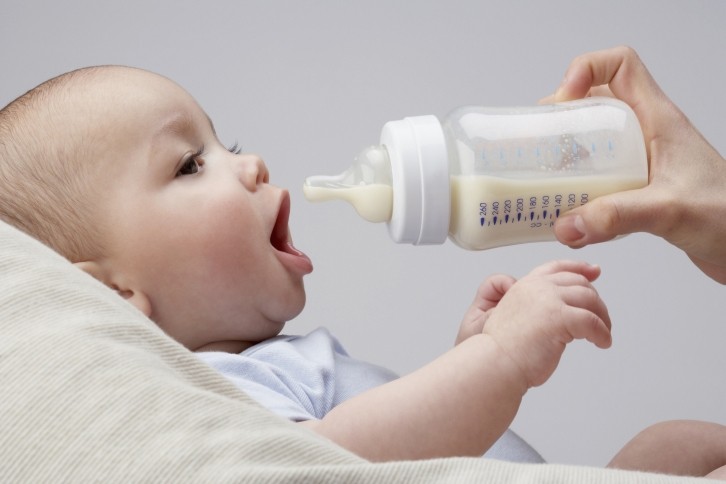WHO infant feeding guidelines "contradict well-established medical advice"

The World Health Organization published its new guidelines for complementary feeding - defined as the process of providing foods in addition to milk - of children 6-23 months of age, last month.
The report states that animal milks are an important source of protein, calcium, riboflavin, potassium, phosphorus, magnesium, and zinc, and stimulate insulin-like growth factor-1, important for bone mass acquisition and growth.
Previously, the advice was that animal milk should not be given as a drink to babies until they're 12 months old, due to concerns that it did not contain enough iron to meet a baby's needs.
However the new report outlines some concerns around formula, stating that although formulas have been continually altered to be as similar as nutritionally possible to breast milk they "lack its immunological properties and do not include all nutrients present in breast milk".
It states: "Because milk formulas have been aggressively marketed and are associated with child morbidity and mortality, an International Code of Marketing of Breastmilk Substitutes was nearly unanimously approved by the World Health Assembly in 1981."
It notes that the use of cow’s milk in infancy has been associated with gastrointestinal blood loss, iron deficiency anaemia (IDA) and increased solute load for kidneys but the occult blood losses in infants 6–11 months of age are "very minor and not likely to affect iron status" and can be avoided with supplements or foods.
The WHO recommends that for infants older than 6 months, commercial infant formula or animal milk are both acceptable alternatives to breastfeeding.
However, it adds that milk formula is recommended when specific home conditions are met, including safe water and sanitation in the household, sufficient infant milk formula is available to support the normal growth and development, and the mother or caregiver can prepare it cleanly and frequently enough so that it carries a low risk of diarrhoea and malnutrition, among other adverse outcomes.
SNE, the voice of the specialised nutrition industry, says it is "very concerned" about the recommendations, as well as the methodology used by the WHO.
Its position statement reads: "The WHO Guideline states that milk formulas ‘are associated with child mortality and morbidity’. Europe’s specialised nutrition industry strongly disagrees with this statement, which does not appear to be supported by any scientific evidence. On the contrary, it is widely accepted in the scientific literature and medical guidelines that formula is the only safe alternative to breastfeeding.
"Furthermore, the Guideline recommends the use of either formula or animal milk for infants 6-11 months who are not breastfed. Recommending animal milk before 1 year clearly goes against the generally accepted medical recommendation that cows’ milk should not be introduced in the diet as breast-milk substitutes before one year of age.
"The European Society for Paediatric Gastroenterology, Hepatology, and Nutrition (ESPGHAN), for example, considers that cows’ milk ‘is ‘a poor iron source and provides excess protein, fat and energy when used in large amounts”.
"Contrary to cows’ milk, follow-up formula, which will soon be covered at international level by an updated Codex Standard, is specifically adapted to the nutritional needs of older infants, both from a composition and safety point of view.
"For young children 12-23 months of age, the Guideline recognises that ‘milk formula provides supplemental sources of iron and other nutrients’ but still doesn’t recommend its use, even if it could be beneficial in addressing nutritional deficiencies and helping to deliver the health outcomes the Guideline aims for."
Furthermore, SNE is surprised the WHO has not recommended that the encouragement of consumption of iron-fortified foods.
WHO states: "For populations already consuming commercial cereal grain-based complementary foods and blended flours, fortification of these cereals can improve micronutrient intake, although consumption should not be encouraged."
The specialised nutrition association questions the scientific methodology used by the WHO for the Guidelines "as some of its recommendations appear not to be based on strong scientific evidence".
It concludes: "SNE welcomes all opportunities to improve infant and young child health and nutrition outcomes but is particularly concerned by the potentially irreversible impact that some of these recommendations could have on the health of infants and young children. We therefore call on the WHO to revise its Guideline using a robust scientific methodology in line with public health goals."







